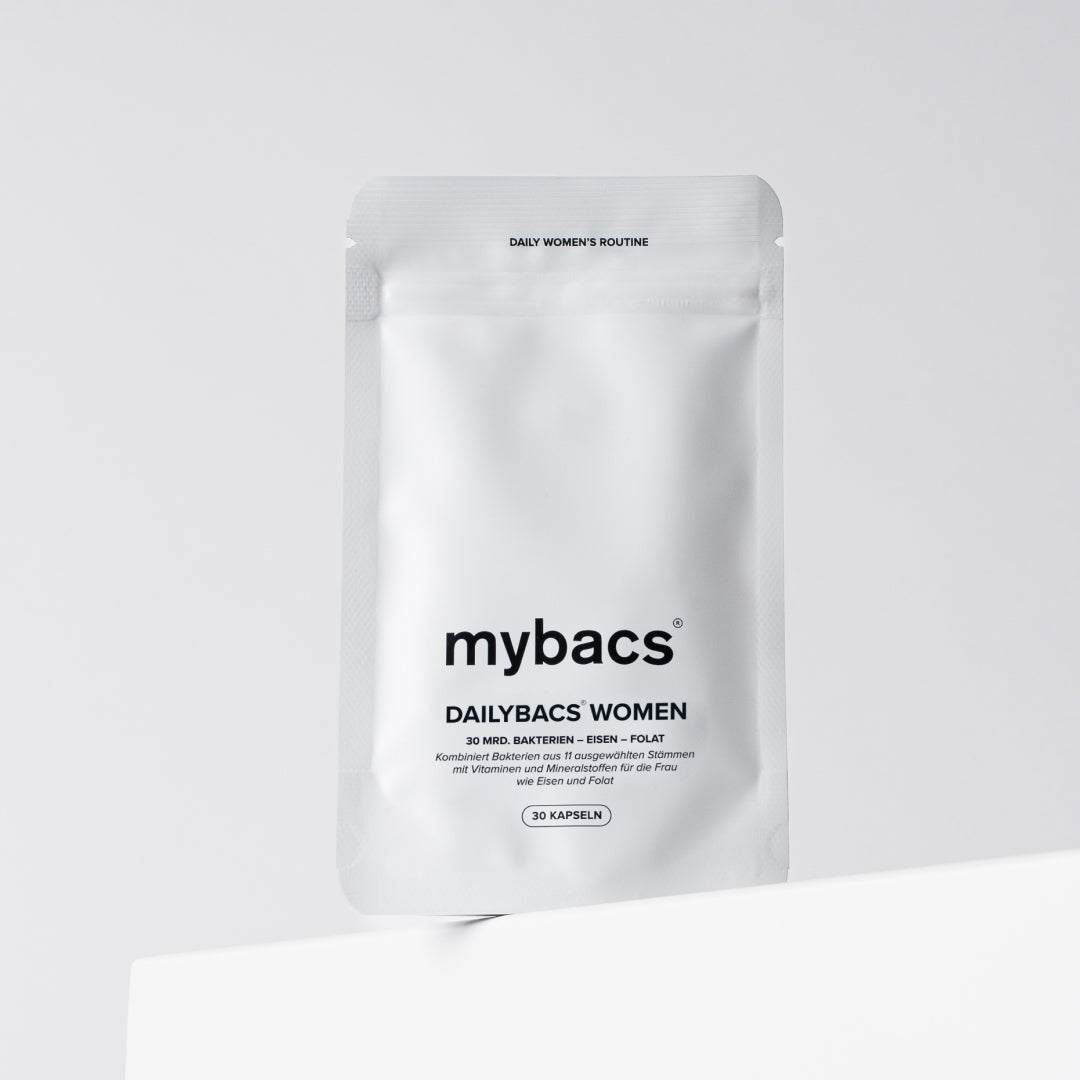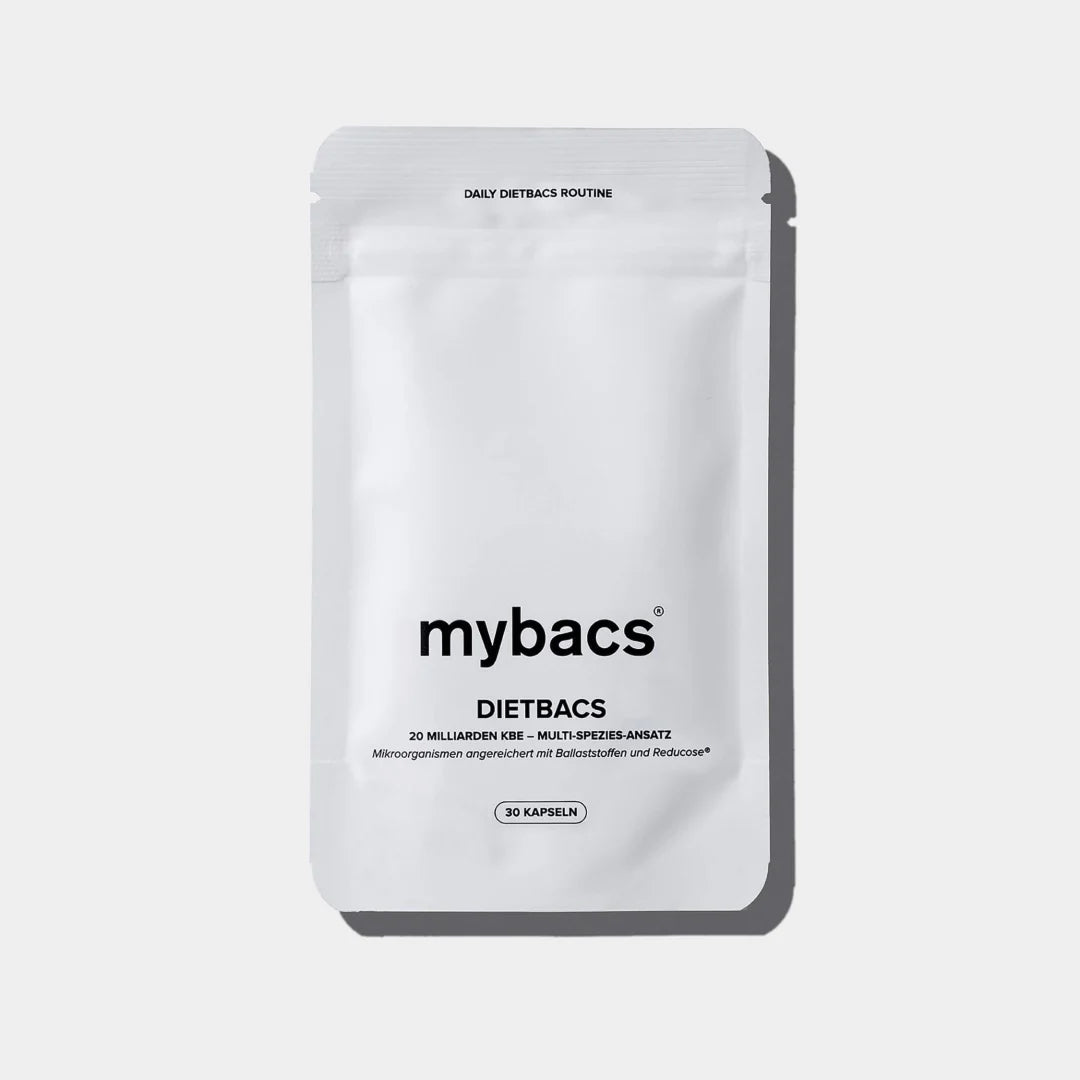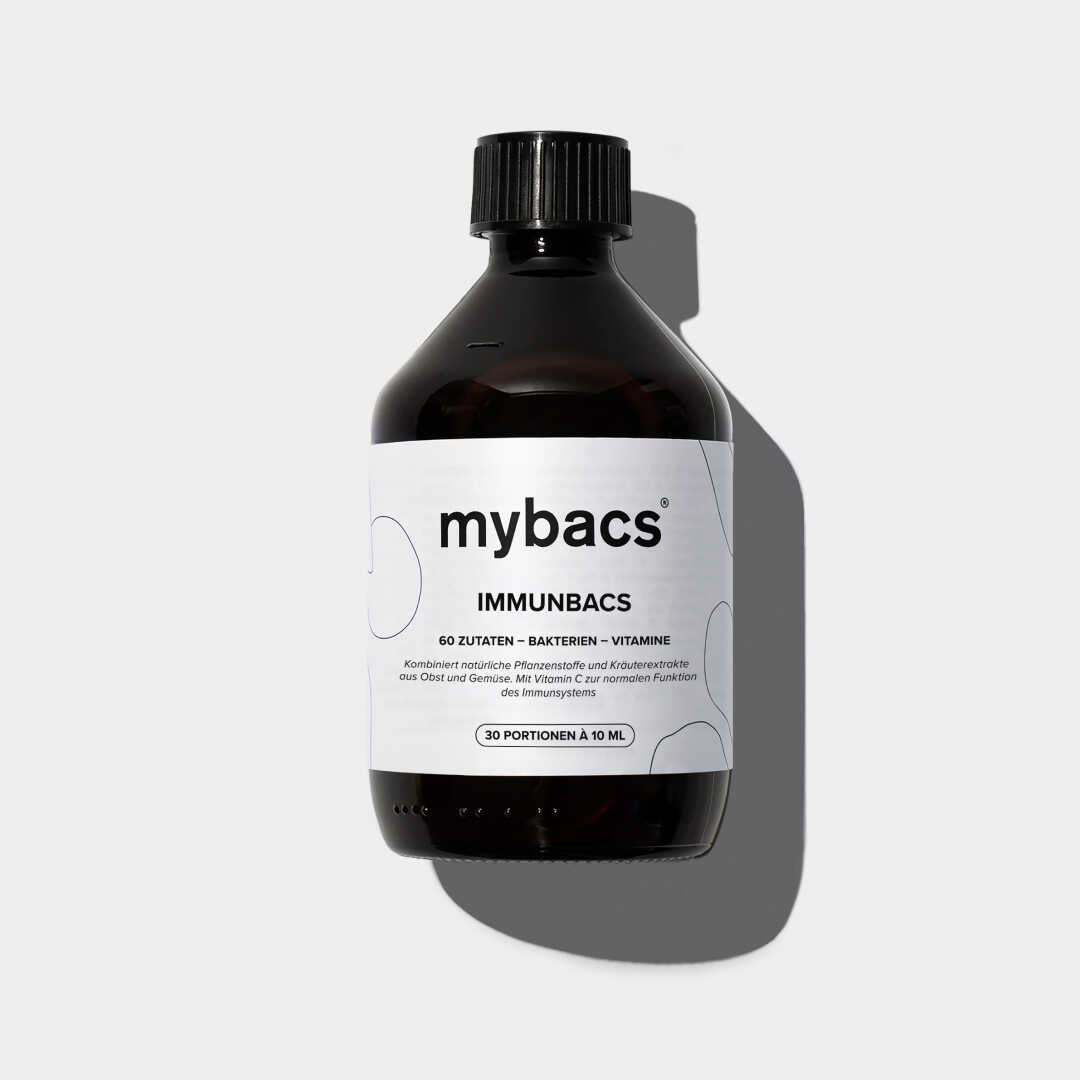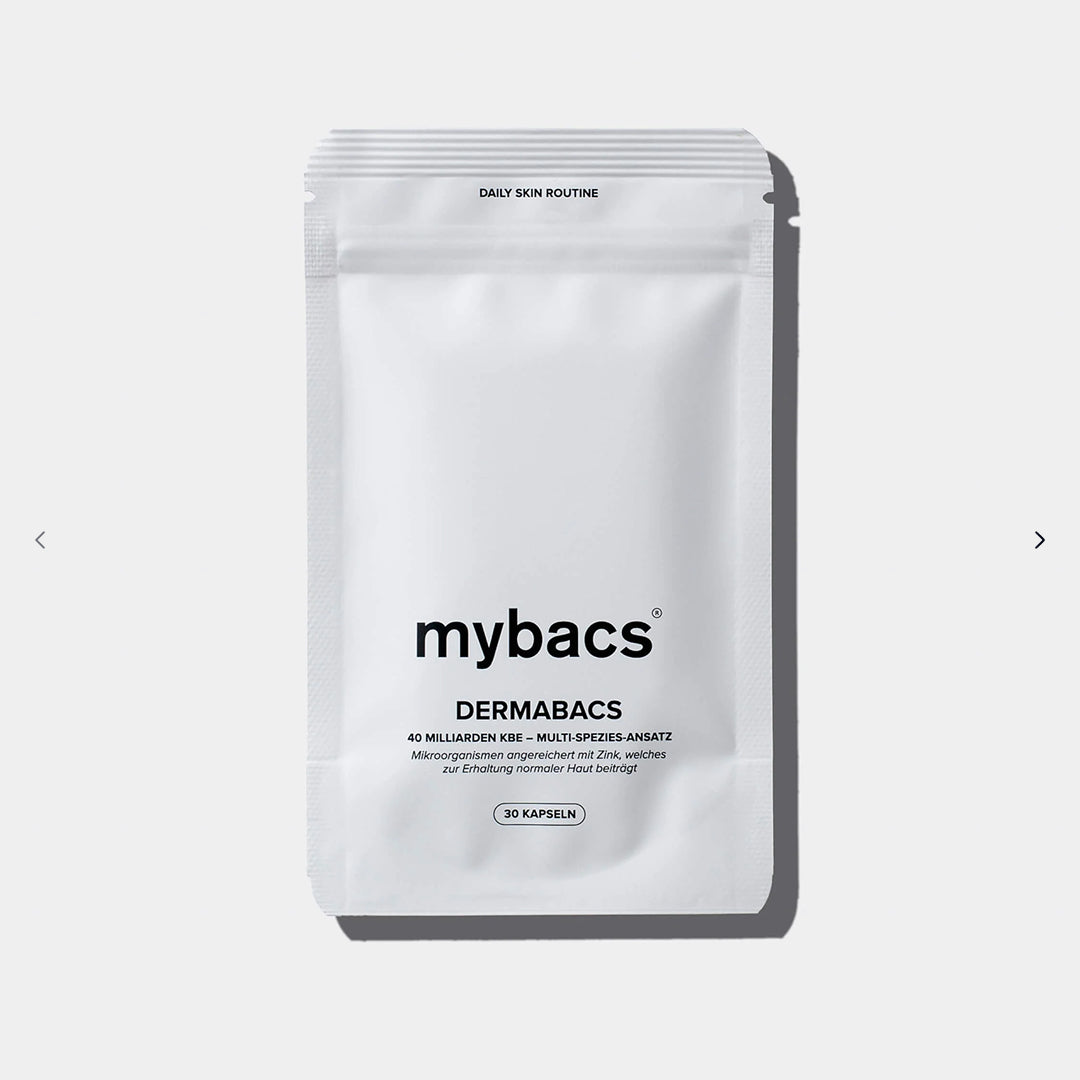Dr. Anne Gürtler works at the Department of Dermatology at the Ludwig Maximilian University of Munich and is a member of the German and European Society for Nutritional Medicine. Since specializing in nutritional medicine, she has been researching the connection between nutrition and inflammatory skin diseases. We asked her a few fascinating questions about the skin microbiome, as well as the connection between the gut and skin.
Our skin is the largest organ in the human body and is home to more than 10 billion bacterial cells, between 10² and 10⁶ per square centimeter of skin, depending on the region. After the gut, human skin contains the second-highest number and diversity of microorganisms. As the body's first line of defense, human skin forms a physical and chemical barrier against the penetration of foreign substances or microorganisms and has an immune system that helps fight off infections. This occurs, among other things, through the symbiosis of bacteria. The connection between our gut and skin microbiome is so close that the skin can be called the "mirror of the gut"—it essentially shows how "healthy" we are on the inside.
We also asked Dr. Anne Gürtler which skin diseases can be caused by a disturbed skin microbiome, what should be considered in skin care, and which foods are particularly beneficial for the skin.
Can you name 3 common symptoms/signs that the skin microbiome is no longer in balance?
Dr. Gürtler: There's no definitive symptom here. Rather, a disrupted skin microbiome can influence many skin diseases, each with varying symptoms. Our skin is populated by countless microorganisms that mostly live in peaceful coexistence. The entirety of bacteria, viruses, fungi, and mites is called the microbiome. In some skin diseases, this balance can be disturbed, causing inflammation and eczema flare-ups. For example, in acne, so-called Cutibaterium acnes, for rosacea more Demodex mites and for neurodermatitis Staphylococcus aureus compared to people with healthy skin.
What can be done about it?
Dr. Gürtler: Targeted therapy can be initiated, for example, through external treatment with prescription creams. A dermatologist should be consulted for this. Your daily lifestyle can also be crucial. When it comes to skin care, "more is better" doesn't always apply. I see every day that people often resort to overly complex cleansing and care routines for skin imperfections. Relying on three products can help the skin regenerate and regain balance:
- Gentle cleansing in the morning and evening (no harsh peelings to avoid micro-injuries to the skin),
- Skin care (fragrance-free care after washing your face),
- Sunscreen (in the morning). Skin care should be tailored to your individual skin type. Consultation with a dermatologist and/or medical cosmetician is recommended.
What fascinates me personally is the connection between skin and nutrition. According to recent findings, the skin and gut seem to be more closely connected than previously thought. For example, some people with skin diseases have not only a disrupted skin microbiome but also an altered composition of their gut microbiome, with some species present in increased numbers and others in decreased numbers compared to people with healthy skin.Our daily diet is considered a key influence on the gut microbiome. Clinical studies are currently investigating whether dietary influences on the gut microbiome can have positive effects on the skin.
What we can already say is that a varied diet characterized by seasonal, unprocessed, plant-based staple foods appears to be beneficial to (skin) health. Probiotics and prebiotics are particularly interesting.
ProbioticsLive microorganisms that provide health benefits to the body. These include, for example, so-called lactic acid bacteria and bifidobacteria. These can be produced through the fermentation of foods (sauerkraut, miso, kimchi, kombucha). They can also be taken as supplements. Previous studies with acne patients have shown, for example, that taking probiotics over several weeks can improve the skin's appearance and positively change corresponding markers in the blood and tissue.1
Prebiotics: Food components that the body cannot break down, but whose consumption promotes the growth and activity of intestinal organisms. These include, for example, starch in potatoes and whole grains and pectin in fruits and vegetables.






